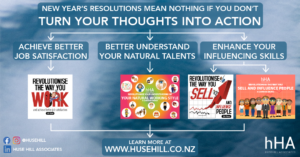Post Statistics
This post has 564 words.
This post has 3840 characters.
This post will take about 3 minute(s) to read.

As with 9/11 and the Global Financial Crisis, the Economy is looking towards some dark days ahead because of the Coronavirus outbreak. Revenue forecasts for the near future look glum as news of the virus hits business confidence. As a result, Markets all over will be affected.
This brings back strong memories to me of when the Global Financial Crisis hit.
Before the GFC of 2008, I worked for five months with DHL Global Forwarding on improving staff competencies. Across the organisation, there were up to 5 different definitions of “competency” that departments were being guided by. It was my job to bring those definitions together into a cohesive whole and write and deliver a competency programme across the whole organisation.
Finally, once I had the programme all set up, I walked into the Managing Director’s office to get the final go-ahead to roll out the programme, when he said…
“Don’t bother sitting down, Jim, this won’t take long.
“Outside there, the Economy is tanking. I’ve just got off the phone with our biggest client who has told us that we have to give them a 20% discount or they’ll go elsewhere. Which means we’re going to have to reduce our workforce. Your programme is now a dead duck.”
My brain quickly whirled around, looking for the appropriate solution.
I suggested to the Managing Director that he had three options in front of him: Let some of his people go, give them redundancy, or support them.
“What do you mean?” he said.
“When you have your workforce out there dealing with clients, who is going to sell better? The person who knows the end of their job is coming, or the person who knows that they’re secure in their employment?”
“The one that feels safe in their job.” He answered.
So there and then, the Managing Director and I worked out a new programme to upskill their Sales competencies across the company.
I still had to take a hit over my fee, but because of what we did, while the Economy and other organisations were suffering, the NZ division of DHL Global Forwarding increased its market share through investing in development, and the workers’ employment was safe.
At a time of crisis, the typical response is to hunker down, tighten the belt, get rid of people and hopefully ride out the bad times without losing too much.
This is the perfect time to see what other organisations are doing, and more importantly what they’re not doing because of fear of the bad Economy, and work to provide an attractive alternative to your clients.
It’s hard to make gains in an Industry in good times. Whereas in bad times, it is much easier to grow market share.
When selling to clients while being secure in your job prospects, upskilling your Sales and Influencing skills will give you that edge so that you can not only ride out the Crisis but successfully grow your organisation’s market share.
In my book Revolutionise the way you Sell and Influence People, learn the basics of successful Selling and Influencing so that you’ll always be confident of bringing in sales and revenue, no matter what the situation is.
Click here for the hardcopy and ebook format of Revolutionise the Way you Sell and Influence People.



